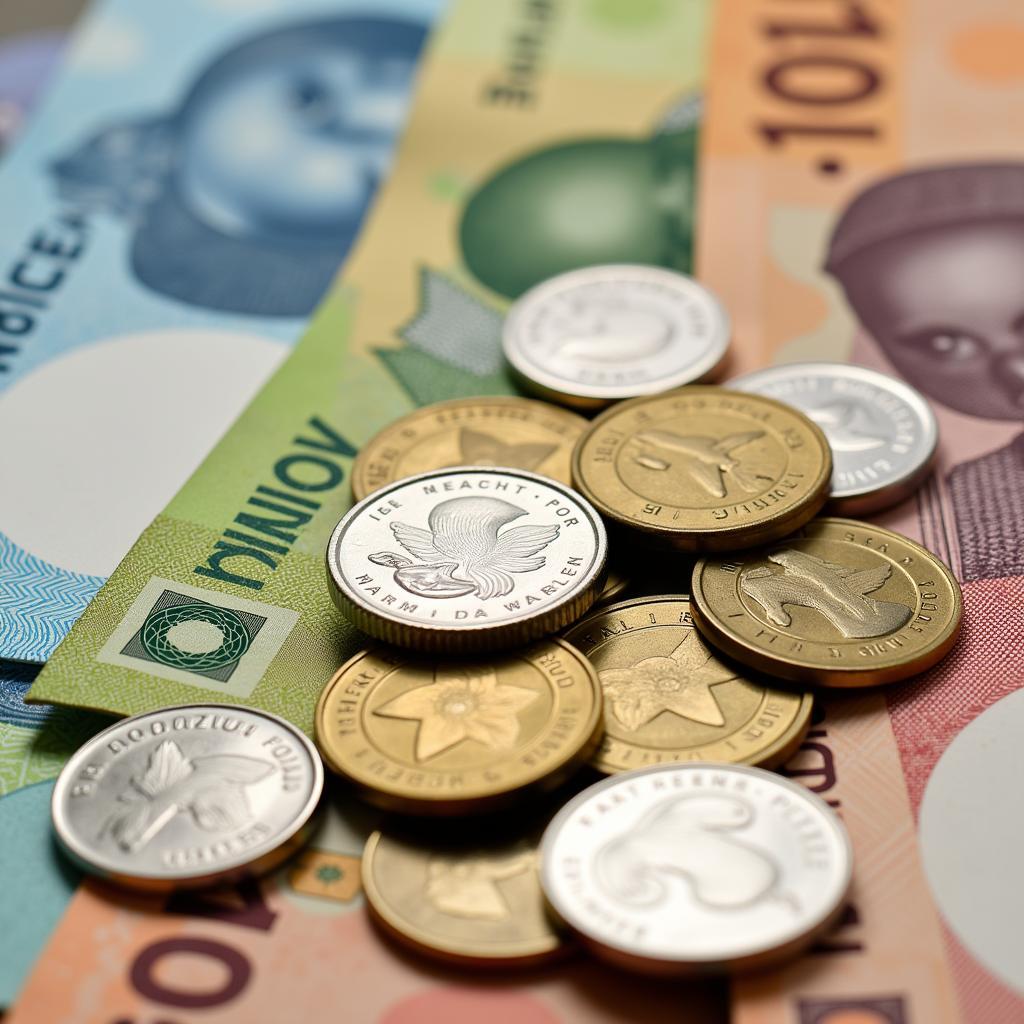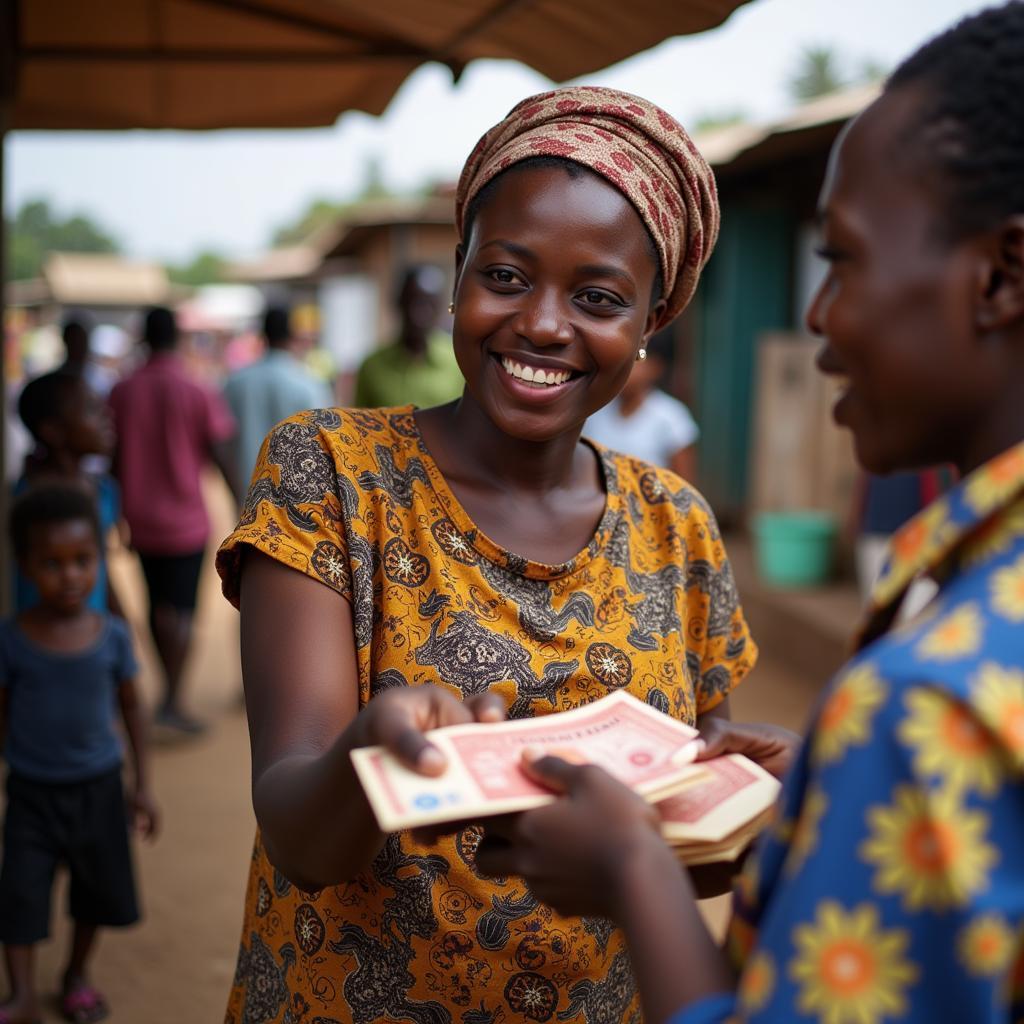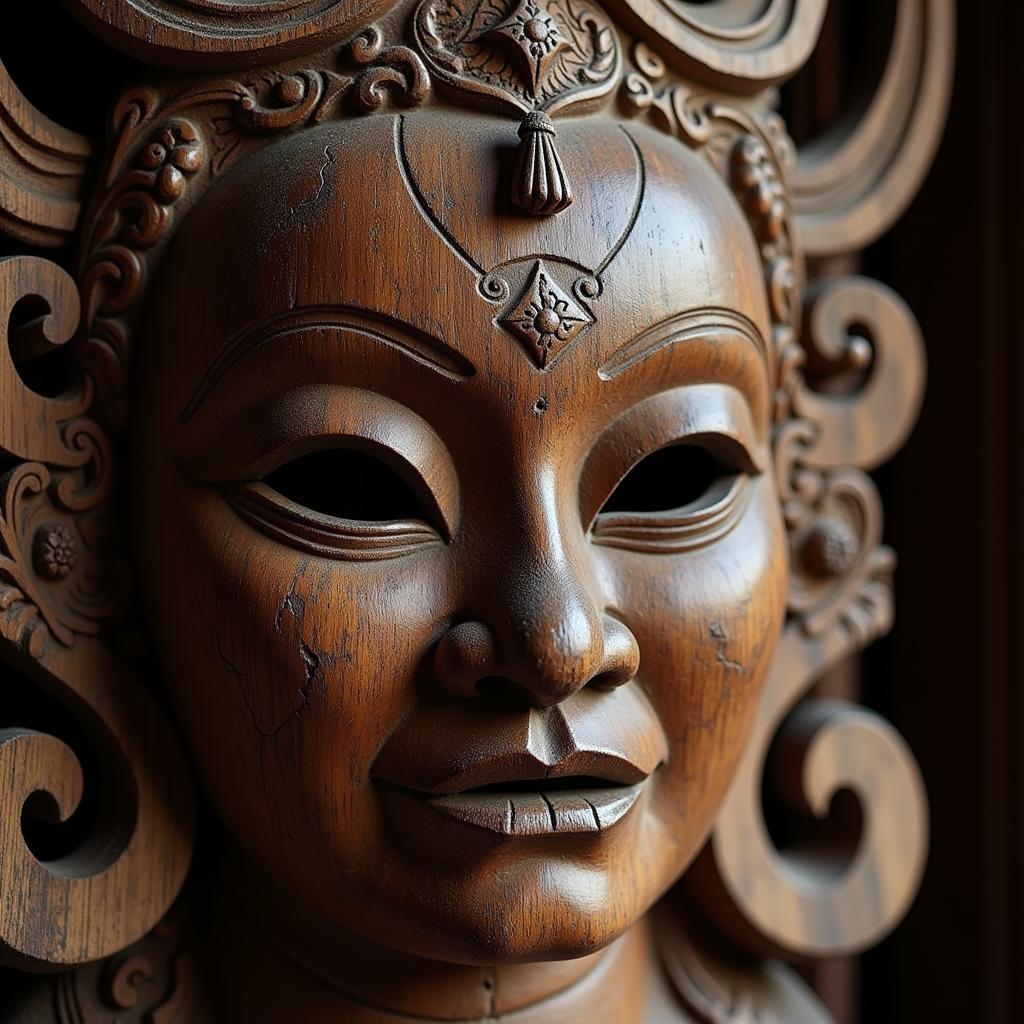Understanding the African Currency: Naira
The Nigerian Naira reigns supreme as the official currency of Africa’s most populous nation, holding a fascinating story woven into its banknotes and coins. From its historical evolution to its current economic standing, the African Currency Naira provides a glimpse into the vibrant tapestry of Nigerian life.
 Nigerian Naira banknotes and coins spread out
Nigerian Naira banknotes and coins spread out
A History Etched in Currency
The Naira, symbolized as ₦ and often referred to by its currency code NGN, came into existence in 1973, replacing the Nigerian pound. This transition marked a significant step in Nigeria’s post-colonial era, embracing a decimal system and establishing its monetary independence. The name “Naira” itself is derived from “Nigeria,” reflecting a sense of national identity.
The Central Bank of Nigeria took the helm in issuing and managing the African currency Naira, a role it continues to uphold today. Over the years, the Naira has witnessed various redesigns, each iteration reflecting the country’s cultural heritage and national aspirations. Images of prominent leaders, iconic landmarks, and significant events have graced the Naira banknotes, narrating the story of Nigeria’s journey.
Delving into Denominations and Exchange Rates
The African currency Naira is divided into 100 kobo, with banknotes available in denominations of ₦5, ₦10, ₦20, ₦50, ₦100, ₦200, ₦500, and ₦1000. Coins are also in circulation, though they are less commonly used for larger transactions. The exchange rate of the Naira fluctuates against major currencies like the US dollar, influenced by factors such as global oil prices (Nigeria being a major oil exporter), economic policies, and market dynamics.
Navigating the Naira in Everyday Life
For travelers and visitors, understanding the African currency Naira is essential for navigating daily transactions in Nigeria. From bustling markets to local eateries, the Naira is the lifeblood of commerce. Exchanging foreign currency is relatively straightforward, with banks and authorized exchange bureaus readily available in urban centers. It’s worth noting that credit card usage, while increasing, is not as widespread as in some other countries, making cash transactions the norm, especially in more rural areas.
 A Nigerian woman using Naira banknotes to pay for goods at a market stall
A Nigerian woman using Naira banknotes to pay for goods at a market stall
The Naira’s Role in Nigeria’s Economic Landscape
As the official currency of Africa’s largest economy, the African currency Naira plays a pivotal role in Nigeria’s financial landscape. From influencing foreign investment to impacting the everyday lives of its citizens, the Naira’s stability and value hold immense significance. The Central Bank of Nigeria actively manages monetary policies to control inflation and ensure economic stability, aiming to create a conducive environment for growth and development.
FAQs about the African Currency Naira
What is the currency of Nigeria?
The currency of Nigeria is the Naira (₦), officially known as the Nigerian Naira (NGN).
What is the exchange rate of the Naira to the US dollar?
The exchange rate fluctuates daily. It’s best to consult a currency converter or check with a bank for the most up-to-date information.
Where can I exchange currency in Nigeria?
Banks, authorized exchange bureaus, and some hotels offer currency exchange services.
Can I use credit cards in Nigeria?
Credit card usage is increasing but not as widespread as in some other countries. Cash transactions are still the norm, especially outside major cities.
Is it better to use US dollars or Naira in Nigeria?
While some businesses may accept US dollars, it’s generally advisable to use the local currency, the Naira, for most transactions.
Need More Information on African Currencies?
Explore other fascinating insights into African currencies and their rich history.
For any assistance or further inquiries, please feel free to contact us:
Phone Number: +255768904061
Email: kaka.mag@gmail.com
Address: Mbarali DC Mawindi, Kangaga, Tanzania.
Our dedicated customer support team is available 24/7 to assist you.

